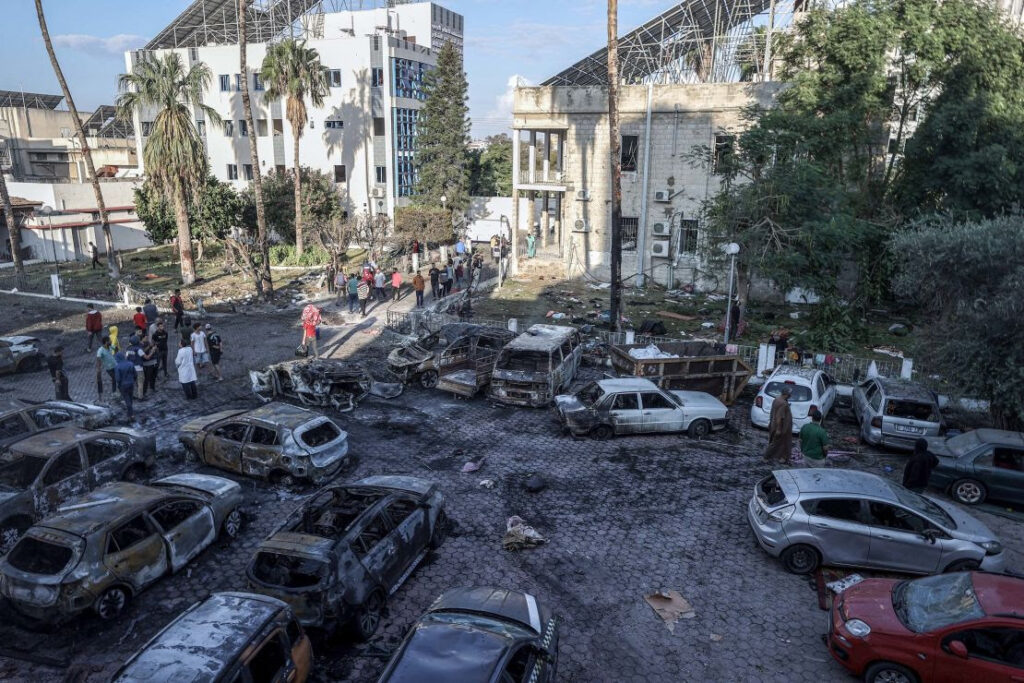CONFLICT ISRAEL - PALESTINE
Waldensians and Partners Demand a Stop to the Dehumanization of the Other in Israel, Palestine, and Gaza
Waldensians and their partners in Italy and South America are expressing “pain, shock and unease” concerning the new eruption of violence in Gaza.
The Evangelical Waldensian Church of the Rio de la Plata in Uruguay and Argentina, speaking in conjunction with its partner churches, and the Federation of Protestant Churches in Italy have both expressed their sorrow and pain over what is happening in Gaza and have called on all sides to break the tragic chain of violence in that region.
The president of the Federation of Protestant Churches in Italy is a Waldensian, Daniele Garone.
The statement of the Federation of Protestant Churches in Italy says in part: “The brutal terrorist attack by Hamas on Israeli civilians on October 7 provoked a predictable and perhaps calculated reaction on the part of Israel which, in turn, targeted Palestinian civilians.
Taken together, these events show how, for both Israelis and Palestinians, the neighbor of a different religion and culture has become dehumanized and is now seen as someone who must be treated as an enemy and destroyed.
Once again, a spiral of hatred and violence has been triggered, with frightened and sometimes civilians as its first victims. In particular, we think of the thousands of people who had hoped to find refuge in the Al Ahli Arab Hospital in Gaza and who, instead, found themselves as targets of a military action by a party whose identity is yet to be
ascertained.”

The Federation of Protestant Churches in Italy asked its member churches and people of faith everywhere to “pray for a just peace in the Middle East, built on the pillars of justice, security, and human rights for all the peoples of the region.” Associating itself with the World Council of Churches and other ecumenical bodies, it called on the Italian government to “promote a ceasefire on both sides and an opening of humanitarian corridors that will allow the civilian population to
reach safe and protected places.”
The Federation “deplored the terrorist strategy of Hamas” and, at the same time, took “positive note of the positions taken by the main associations of Muslims in Italy.” It also denounced “the violence of anti-Semitism which, at times, under the cover of political arguments, continues to plague Europe as well as the Middle East.” The Federation’s statement also explicitly rejected the “false and exploitative notion that Hamas terrorists represent the Palestinian people or are genuine expressions of Islam. In fact, Hamas represents an extremist ideology that is opposed by millions of Muslims in the Arab world and elsewhere.”
In order to build a lasting peace, the Federation asked for the “creation of a true Palestinian state
as well as for security for the Israeli state, in a peaceful and reconciled Middle East.”
The Evangelical Waldensian Church of the Rio de la Plata made its statement in conjunction with the Lutheran and Evangelical churches in Argentina and Uruguay.
The South American ecumenical statement was based on the experience of pastors who had been volunteers in the World Council of Churches’ Ecumenical Accompaniment Program in Palestine and Israel.
These pastors wrote: “The pain, shock, and unease we are feeling now as we see pictures and watch videos from Israel and Palestine is like the shock we experienced when we were Ecumenical Accompaniers in the West Bank and had the chance to witness firsthand the structural and systematic violations of daily life that have been occurring in that part of the world for 75 years.”

The statement of the South American churches says further that “in our role as churches we should side with the victims, as our Lord Jesus Christ did in His historical practice. We call on our congregations and society as a whole to show solidarity with those who are suffering human rights violations.” In order to show authentic solidarity, churches need to “critically examine the context and history in which the current situation is embedded.”
The conclusion of the South American statement is one which people of good will everywhere can endorse: “We pray that … love and justice will meet and become a reality in the Holy Land as well as in our own.”
The South American statement was signed by Leonardo Schindler of the Evangelical Church of the
Rio de la Plata, Wilma E. Rommel of the United Evangelical Lutheran Church, and Marcelo Nicolau
of the Evangelical Waldensian Church of the Rio de la Plata.
Would you like to respond to this or any other AWS e-blast? Please use the reply button to send your thoughts to the American Waldensian Society. Do you know someone who might like to receive a weekly email update about Waldensians and their work worldwide? If so, please reply to this address with their name and email address.
